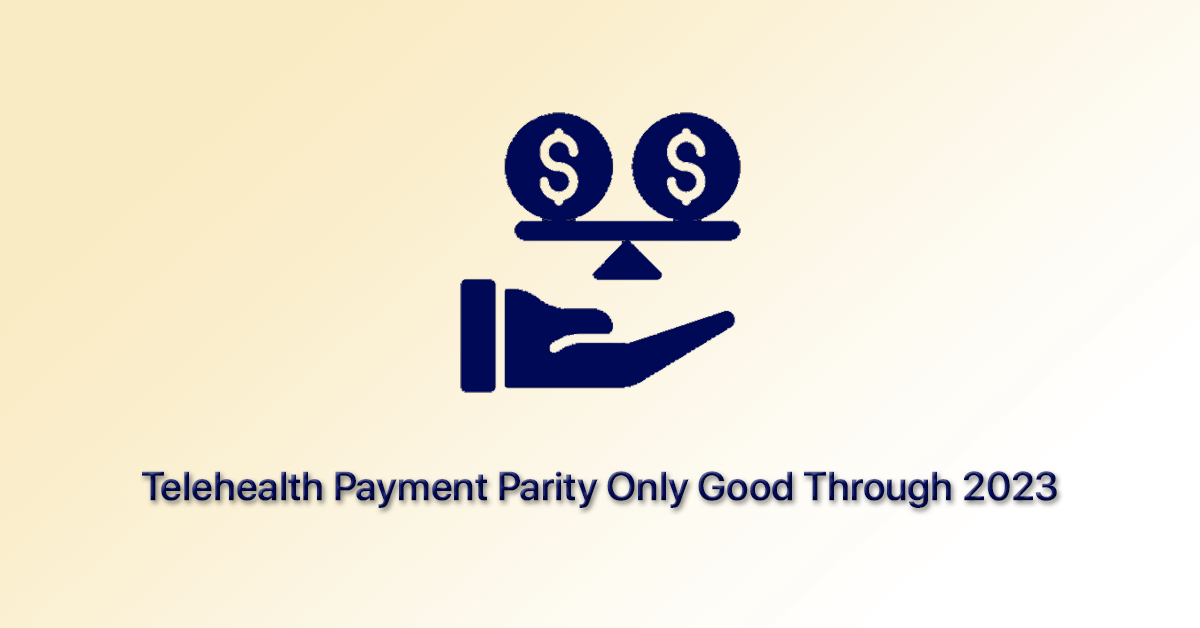Value-based care is revolutionizing healthcare delivery, shifting the focus from volume to value. But what exactly does that mean, and how do seemingly technical elements like CPT Codes in Value-Based Care fit into the picture? This blog post dives deep into the world of value-based care, exploring its core components and highlighting the crucial role […]
Value-Based Payment: Putting Patient Health First: When recommending a medical procedure, should doctors prioritize insurance reimbursements or patient health? The answer hinges on the payment model. In a fee-for-service system, providers are compensated for each individual service, potentially incentivizing excessive care. This model can lead to increased costs and harm patients through unnecessary treatments or medications. […]
The omnibus spending bill continues telehealth waivers for two years past the PHE, but was silent on the issue of reimbursement. The federal government extended telehealth waivers for two years, but the current higher rate of reimbursement is in place only through the end of this year. During the public health emergency, the Centers for […]
Quality metric reporting can be a significant challenge to health care administration due to a number of obstacles. First and foremost, you need buy-in from the physicians providing the care to the patients. Without this, it is difficult to make any meaningful changes to the pattern of care provided. Second, it requires having a very […]
Value-based payment models, including accountable care organizations, bundled payment models, and capitation models, can generate savings for providers and limit healthcare spending. As healthcare spending escalates in the US, stakeholders have started looking at value-based payment models to address rising costs, but many payments are still tied to fee-for-service models, according to a Health Affairs […]
Implementing and pursuing innovation in digital health and healthcare IT should be a priority for all U.S. healthcare providers and payers — especially as the lessons and response to the Covid-19 pandemic become permanently part of our everyday lives. The outbreak of Covid-19 was a “black swan” event that dramatically accelerated the evolution and acceptance […]
Nearly 75 percent of primary care practice leaders have invested in additional staff to accommodate the shift to value-based care, while 71 percent have added new technology. Staffing and technology are the top investment areas for primary care practice leaders as they manage the challenges of shifting from fee-for-service (FFS) models to value-based care, according […]
Outcomes-based models are spreading, but fee-for-service still dominates payment landscape. Is value-based care having a moment? Health care policy experts and institutions have long agreed that fee-for-service (FFS) medicine is wasteful, outmoded and at least partially responsible for the U.S. spending far more than peer nations on health care, but with outcomes that are no […]
Among the proposed new rules is one intended to clarify the contentious “Stark Law” On Oct. 9, the Centers for Medicare & Medicaid Services (CMS) issued a proposed rule to modernize and clarify the regulations that interpret the Medicare physician self-referral law (often called the “Stark Law”). The law prohibits physicians from making referrals for […]









